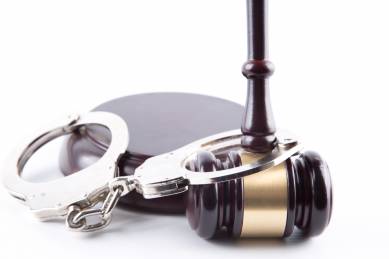
Hector Alejandro Cabrera Fuentes, a Mexican citizen residing in Singapore, was arrested based on a Complaint charging him with acting within the United States on behalf of a foreign government (Russia), without notifying the Attorney General, and conspiracy to do the same.
John C. Demers, Assistant Attorney General for National Security; Ariana Fajardo Orshan, United States Attorney for the Southern District of Florida; George Piro, Special Agent in Charge of the Federal Bureau of Investigation (FBI), Miami Field Office; and Diane J. Sabatino, Director of Field Operations, U.S. Customs and Border Protection (CBP), Miami Field Office, made the announcement.
According to court documents, a Russian government official recruited Fuentes in 2019 and directed Fuentes to rent a specific property in Miami-Dade County, Florida. The Russian official told Fuentes not to rent the apartment in Fuentes’s own name and not to tell his family about their meetings. Fuentes traveled to Russia and informed the Russian government official about the arrangements. The official approved and told Fuentes to see him again on his next trip to Russia.
In February 2020, Fuentes traveled to Moscow again and met with the Russian government official. At this meeting, the Russian government official provided Fuentes with a physical description of a U.S. Government source’s vehicle and told Fuentes to locate the car, obtain the source’s vehicle license plate number, and note the physical location of the source’s vehicle. The Russian official instructed Fuentes to meet the Russian official again in April or May 2020, to inform him of the results of the search for the source’s vehicle.
Furthermore, according to court documents, Fuentes traveled to Miami on Feb. 13, 2020, from Mexico City. The next day, on February 14, Fuentes’s rental car drew the attention of a security guard where the U.S. government source resided because it entered its premises by tailgating another vehicle to gain access. When a security guard approached Fuentes’s rental car, Fuentes’s travel companion, who resides and is legally married to Fuentes in Mexico, walked away from Fuentes’s rental car to the U.S. Government source’s vehicle and took a photograph of the source’s vehicle’s license plate. When security questioned Fuentes and his travel companion on the nature of their business in the building, Fuentes provided a name of an individual whom they were purportedly visiting. Security did not recognize the person as living there and told Fuentes to leave the premises.
On the evening of February 16, 2020, Fuentes and his travel companion arrived at Miami International Airport to leave to United States, on their way to Mexico City. U.S. Customs and Border Protection inspected the phone of Fuentes’s travel companion and found a close-up image of the license plate of the U.S. Government source’s vehicle in the “recently deleted folder” of her phone. When asked about the photo, Fuentes admitted tasking his travel companion to take the photo of the vehicle’s license plate. CBP’s review of Fuentes’s phone revealed a WhatsApp message from his travel companion sent to Fuentes with the same photograph of the vehicle license plate. Fuentes admitted to law enforcement officers that he was directed by a Russian government official to conduct this operation. According to court documents, messages on Fuentes’s phone showed that the Russian official initiated and directed the meetings.
A pretrial detention hearing is set for 10:00 a.m. on Friday, February 21, 2020. Fuentes’s arraignment is set for 10:00 a.m. on March 3, 2020. Both hearings will occur in U.S. magistrate court in Miami, Florida.
Assistant Attorney General Demers and U.S. Attorney Fajardo Orshan commended the investigative efforts of the FBI and CBP.
This case is being prosecuted by Assistant U.S. Attorney Michael Thakur of the Southern District of Florida and Trial Attorneys Thea Kendler and Matthew McKenzie of the National Security Division’s Counterintelligence and Export Control Section.
A criminal complaint is an accusation and defendant is presumed innocent unless and until he is found guilty beyond a reasonable doubt.
Information from the DOJ.


Chattooga Local News
Pastor Jason Boyd Named Pastor of West Berryton Faith Temple Holiness Church

Chattooga Local Government
Democrats Announce Qualifying Dates for Chattooga Board of Education Races

Bulloch Public Safety
02/23/2026 Booking Report for Bulloch County

Chattooga Local News
Postal Service Celebrates Bruce Lee

Bulloch Public Safety
01/26/2026 Booking Report for Bulloch County

Bulloch Public Safety
02/09/2026 Booking Report for Bulloch County

Bulloch Public Safety
02/16/2026 Booking Report for Bulloch County

Bulloch Public Safety
02/20/2026 Booking Report for Bulloch County

Bulloch Public Safety
02/02/2026 Booking Report for Bulloch County





